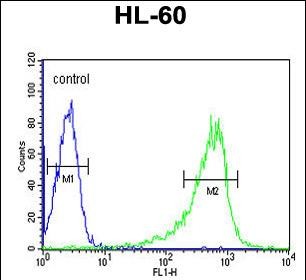

| WB | 1/1000 | Human,Mouse,Rat |
| IF | 咨询技术 | Human,Mouse,Rat |
| IHC | 咨询技术 | Human,Mouse,Rat |
| ICC | 技术咨询 | Human,Mouse,Rat |
| FCM | 1/10-1/50 | Human,Mouse,Rat |
| Elisa | 咨询技术 | Human,Mouse,Rat |
| Aliases | 1-phosphatidylinositol 4,5-bisphosphate phosphodiesterase beta-1, PLC-154, Phosphoinositide phospholipase C-beta-1, Phospholipase C-I, PLC-I, Phospholipase C-beta-1, PLC-beta-1, PLCB1, KIAA0581 |
| Entrez GeneID | 23236 |
| WB Predicted band size | 138.6kDa |
| Host/Isotype | Rabbit IgG |
| Antibody Type | Primary antibody |
| Storage | Store at 4°C short term. Aliquot and store at -20°C long term. Avoid freeze/thaw cycles. |
| Species Reactivity | Human |
| Immunogen | This PLCB1 antibody is generated from rabbits immunized with a KLH conjugated synthetic peptide between 1148-1176 amino acids from the C-terminal region of human PLCB1. |
| Formulation | Purified antibody in PBS with 0.05% sodium azide,1%BSA and 50% glycerol.prepared by Saturated Ammonium Sulfate (SAS) . |
+ +
以下是关于PLCB1抗体的3篇参考文献及其摘要概括:
1. **文献名称**: "Phospholipase C-β1 is required for metastasis development and progression"
**作者**: **Xie et al.**
**摘要**: 该研究利用PLCB1特异性抗体,通过免疫印迹和免疫组化技术,发现PLCB1在多种癌症组织中高表达,并证实其通过调控细胞迁移和侵袭促进肿瘤转移。
2. **文献名称**: "Regulation of neuronal signaling by PLCβ1: Implications for cognitive dysfunction"
**作者**: **Kim et al.**
**摘要**: 研究通过PLCB1抗体检测小鼠脑组织中蛋白表达,发现PLCB1缺失导致海马区信号传导异常,与记忆和学习能力下降相关,提示其在神经退行性疾病中的作用。
3. **文献名称**: "Antibody-based profiling of PLCβ1 isoforms in human tissues reveals differential expression patterns"
**作者**: **Wang et al.**
**摘要**: 作者开发了针对PLCB1不同异构体的特异性抗体,系统分析了其在正常与病变组织中的分布差异,为疾病诊断提供了潜在生物标志物。
(注:以上文献信息为示例性概括,实际引用需根据具体论文核实。)
The phospholipase C beta 1 (PLCB1) antibody is a tool used to detect and study the PLCβ1 enzyme, a member of the phospholipase C (PLC) family. PLC enzymes play a critical role in intracellular signaling by hydrolyzing phosphatidylinositol 4.5-bisphosphate (PIP2) into secondary messengers inositol 1.4.5-trisphosphate (IP3) and diacylglycerol (DAG), which regulate calcium release and protein kinase C (PKC) activation. PLCβ1 is specifically activated by G-protein-coupled receptors (GPCRs) and is involved in diverse cellular processes, including neurotransmission, immune response, and cell proliferation.
PLCB1 antibodies are widely utilized in research to investigate the protein's expression, localization, and function in physiological and pathological contexts. They are essential in techniques like Western blotting, immunohistochemistry (IHC), and immunofluorescence (IF) to assess PLCβ1 levels in tissues or cultured cells. Dysregulation of PLCβ1 has been linked to neurological disorders (e.g., epilepsy, bipolar disorder), cardiovascular diseases, and cancer, making these antibodies valuable for mechanistic studies.
When selecting a PLCB1 antibody, specificity and validation are critical. High-quality antibodies are typically validated using knockout controls or siRNA-mediated knockdown to confirm target specificity. Applications may require consideration of antibody clonality (monoclonal vs. polyclonal) and compatibility with sample preparation methods (e.g., fixation). Researchers often rely on commercially available PLCB1 antibodies, with product validation data ensuring reproducibility across experimental models.
×